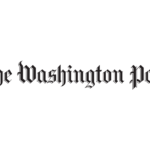The scientific jigsaw puzzle: Fitting the pieces of the low-level radiation debate
By Jan Beyea | May 1, 2012
Quantitative risk estimates from exposure to ionizing radiation are dominated by analysis of the one-time exposures received by the Japanese survivors at Hiroshima and Nagasaki. Three recent epidemiologic studies suggest that the risk from protracted exposure is no lower, and in fact may be higher, than from single exposures. There is near-universal acceptance that epidemiologic data demonstrates an excess risk of delayed cancer incidence above a dose of 0.1 sievert (Sv), which, for the average American, is equivalent to 40 years of unavoidable exposure from natural background radiation. Model fits, both parametric and nonparametric, to the atomic-bomb data support a linear no-threshold model, below 0.1 Sv. On the basis of biologic arguments, the scientific establishment in the United States and many other countries accepts this dose-model down to zero-dose, but there is spirited dissent. The dissent may be irrelevant for developed countries, given the increase in medical diagnostic radiation that has occurred in recent decades; a sizeable percentage of this population will receive cumulative doses from the medical profession in excess of 0.1 Sv, making talk of a threshold or other sublinear response below that dose moot for future releases from nuclear facilities or a dirty bomb. The risks from both medical diagnostic doses and nuclear accident doses can be computed using the linear dose-response model, with uncertainties assigned below 0.1 Sv in a way that captures alternative scientific hypotheses. Then, the important debate over low-level radiation exposures, namely planning for accident response and weighing benefits and risks of technologies, can proceed with less distraction. One of the biggest paradoxes in the low-level radiation debate is that an individual risk can be a minor concern, while the societal risk—the total delayed cancers in an exposed population—can be of major concern.
Together, we make the world safer.
The Bulletin elevates expert voices above the noise. But as an independent nonprofit organization, our operations depend on the support of readers like you. Help us continue to deliver quality journalism that holds leaders accountable. Your support of our work at any level is important. In return, we promise our coverage will be understandable, influential, vigilant, solution-oriented, and fair-minded. Together we can make a difference.















